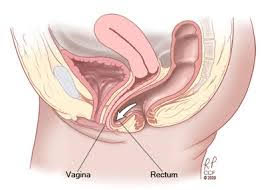A rectocele is a weakness in the tissues of the anterior wall of the rectum and the posterior wall of the vagina and its intervening tissues. The rectal wall may bulge into the vagina, particularly with straining.
Cystocele (bladder bulging into the vagina), enterocele (bowel bulging into the vagina), and uterine prolapse can be associated conditions.
Symptoms and Signs:
- A bulge in the vagina
- Constipation and difficult defecation
- A sensation of pelvic or rectal pressure
- Incomplete evacuation
Cause:
Rectoceles often develop secondary to childbirth, where the fascia between the rectum and vagina is irreversibly stretched. Chronic straining, such as constipation, heavy lifting, and coughing, can predispose to this condition. Ageing and previously having had a hysterectomy are risk factors for developing a rectocele.
Diagnosis & Investigations:
Doctors will recommend doing the following physical examinations to start the rectocele treatment in Melbourne as soon as possible.
- Pelvic examination whilst straining to assess the extent of the rectocele.
- Defecating Proctogram outlines the size of the rectocele, and whether it empties during evacuation.
Rectocele Treatment in Melbourne:
A rectocele only needs treatment if it causes a condition called obstructed defecation, whereby efforts at emptying the rectum during defecation are impaired by stool being held up in the rectocele.
Surgical treatment in the form of rectocele repair can be performed via the vaginal wall (transvaginal repair) or the rectal wall (transrectal) or can be performed by incising tissue between the vagina and rectum and repairing or placing mesh between the vagina and rectum.
Most series report successful results in up to 80% of cases.
A new procedure, stapled transanal rectal resection (STARR), is currently being evaluated for use in rectoceles with obstructed defecation. The results of this procedure are good, but it is too early to recommend this procedure outside a trial setting.
There is another rectocele treatment in Melbourne called laparoscopic, which approaches have been used in this condition, but this is usually combined with treatment of other conditions such as pelvic organ prolapses and is generally not used to treat rectocele in isolation.
Links:
www.fascrs.org/patients/disease-condition/rectocele-expanded-information
